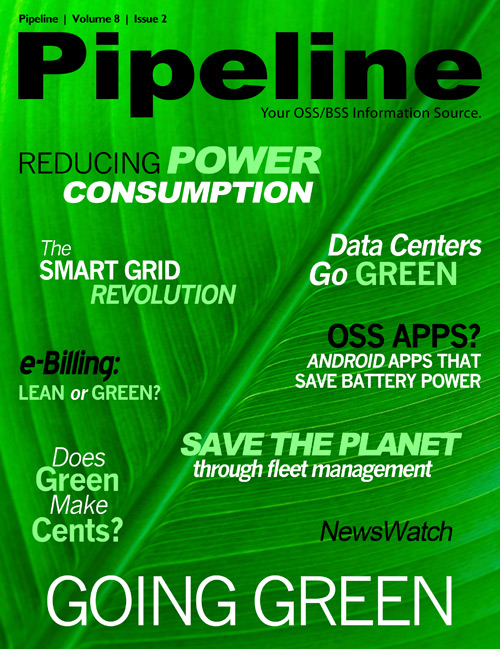The Business Case, or lack thereof, for Going Green
Bill Kula, Director of Media Relations for Verizon Communications, when asked whether Verizon
has measured increased customer loyalty and satisfaction among customers who have adopted
online billing and payment, admits that the company has, “not done such a measurement,” but says
that, “customer retention is significantly high among customers who have adopted online usage.”
He says that Verizon knows, “that customers who engage with our online and mobile properties
have a lower churn rate than those who do not,” and that while there are many contributing factors,
Verizon, “believe[s] the ‘green’ factor is one of them.” Kula adds that the, “pace of adoption” of
paperless billing, “is slowly accelerating.” Promotional campaigns tend to bump it along a bit faster,
he says, as, “usage for mobile billing has more than doubled in the past year.” And Kula states frankly
that, “while the ‘going green’ factor appeals to a small segment, studies have shown that customers are
more interested in savings or a chance to win free services.”
Verizon has been running sweepstakes to encourage elimination of paper billing and payment methods.
The pitch is simple – customers who switch to paper free billing are entered in a sweepstakes to win
$10,000.00. Those who also sign up to pay their bills automatically from a bank account get a second
entry into the sweepstakes. The secondary messaging tied to paperless billing – somewhat understated
compared to the sweepstakes promotion – promotes a green angle.
Though the desire to go green may not drive paperless billing uptake in big ways, Kula points out that
Verizon’s wireless segment, “has generated approximately $1 million in cost savings year to date.”
through paperless billing and payment. So, while going green may not drive uptake in big ways, there is
a measurable byproduct in regards to expense reduction that results from paperless billing’s efficiency.
Kula further adds that in a recent survey of roughly 2,400 Verizon Wireless customers, 61 percent said
that they would download a smartphone app to access account, billing, and support functions and
would be most likely to view and pay bills, and view and update account profiles using a mobile app.
The 'A' Stands for 'Arbor Day'
AT&T has a range of sustainability initiatives that are similar to enterprises in many markets in regards
to recycling and efforts to reduce energy consumption. AT&T maintains an alliance with the Arbor Day
Foundation and takes credit for helping to plant more than 250,000 trees in 2010. The company says
more than 14 million of its customers, across all segments, have opted-in to paperless billing; again, this
is roughly 10 percent of its consumer customer base across wireless and wireline, based on figures from
its most recent 10-Q. That uptake translated into 667 million sheets of paper saved, which AT&T claims
is equivalent to roughly 96,000 trees. Furthermore, the company recycled more than 3.5 million wireless
devices in 2010, which is about 12.5 percent less than two quarters worth of net subscriber additions.
Whether these initiatives deliver measurable customer loyalty or customer satisfaction gains is not something on which the company was able to comment specifically. As much as AT&T makes an admirable effort to demonstrate its commitment to sustainability, it’s not clear whether customers are excited by it in ways that translate into sales or loyalty. With that said, green business appears to be a must-have in today’s image-driven market, even if in reality it is a “nice-to-have” for customers.





